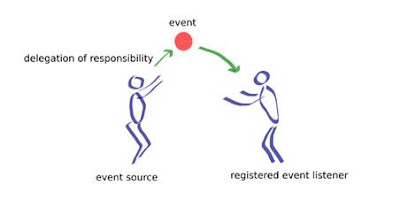SPEL : Spring Expression Language Tutorial
Spring Expression Language Tutorial
SpEL
is an exression language supporting
the features of querying and manipulating an object graph at runtime.
There
are many expression languages available such as JSP EL, OGNL, MVEL and JBoss
EL. SpEL
provides
some additional features such as method invocation and string templating
functionality.
SpEL
API
The
SpEL API provides many interfaces and classes. They are as follows:
- Expression interface
- SpelExpression class
- ExpressionParser interface
- SpelExpressionParser class
- EvaluationContext interface
- StandardEvaluationContext class
SPEL Example
import org.springframework.expression.Expression;
import
org.springframework.expression.ExpressionParser;
import
org.springframework.expression.spel.standard.SpelExpressionParser;
public class Test {
public static void main(String[] args) {
ExpressionParser parser = new SpelExpressionParser();
Expression exp = parser.parseExpression("'Hello SPEL'");
String message = (String) exp.getValue();
System.out.println(message);
//OR
//System.out.println(parser.parseExpression("'Hello
SPEL'").getValue());
}
}
Using
concat() method with String
ExpressionParser parser = new SpelExpressionParser();
Expression exp = parser.parseExpression("'Welcome
SPEL'.concat('!')");
String message = (String) exp.getValue();
System.out.println(message);
Converting
String into byte array
Expression exp = parser.parseExpression("'Hello
World'.bytes");
byte[] bytes = (byte[]) exp.getValue();
for(int i=0;i<bytes.length;i++){
System.out.print(bytes[i]+" ");
}
Getting
length after converting string into bytes
Expression exp = parser.parseExpression("'Hello
World'.bytes.length");
int length = (Integer) exp.getValue();
System.out.println(length);
Converting
String contents into uppercase letter
Expression exp = parser.parseExpression("new
String('hello world').toUpperCase()");
String message = exp.getValue(String.class);
System.out.println(message);
//OR
System.out.println(parser.parseExpression("'hello
world'.toUpperCase()").getValue());
Operators
in SPEL
We can use many
operators in SpEL such as arithmetic, relational, logical etc. There are given
a lot of examples of using different operators in SpEL.
import org.springframework.expression.ExpressionParser;
import
org.springframework.expression.spel.standard.SpelExpressionParser;
public class Test {
public static void
main(String[] args) {
ExpressionParser parser =
new SpelExpressionParser();
//arithmetic operator
System.out.println(parser.parseExpression("'Welcome
SPEL'+'!'").getValue());
System.out.println(parser.parseExpression("10
* 10/2").getValue());
System.out.println(parser.parseExpression("'Today
is: '+ new java.util.Date()").getValue());
//logical operator
System.out.println(parser.parseExpression("true
and true").getValue());
//Relational operator
System.out.println(parser.parseExpression("'Piyush'.length()==5").getValue());
}
}
Variable in SPEL |
StandardEvaluationContext
In SpEL, we can store a
value in the variable and use the variable in the method and call the method.
To work on variable, we need to use StandardEvaluationContext class.
Example
of Using variable in SPEL
Calculation.java
public class Calculation {
private int number;
public int getNumber() {
return number;
}
public void setNumber(int number) {
this.number = number;
}
public int cube(){
return number*number*number;
}
}
Test.java
import
org.springframework.expression.ExpressionParser;
import
org.springframework.expression.spel.standard.SpelExpressionParser;
import org.springframework.expression.spel.support.StandardEvaluationContext;
public class Test {
public static void main(String[] args) {
Calculation calculation=new Calculation();
StandardEvaluationContext context=new StandardEvaluationContext(calculation);
ExpressionParser parser = new SpelExpressionParser();
parser.parseExpression("number").setValue(context,"5");
System.out.println(calculation.cube());
}
}



Comments
Post a Comment